Prevent waterlogging in Dhaka North
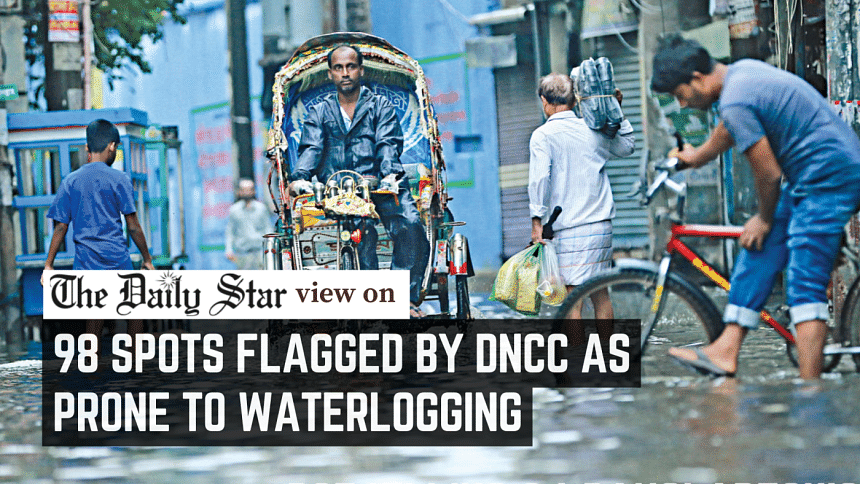
Waterlogging in Dhaka has become as predictable as the monsoon downpours. According to a report, the Dhaka North City Corporation (DNCC) has identified 98 spots vulnerable to waterlogging, often leading to submerged homes and roads, hours lost in traffic gridlock, and severe disruption to daily life. This is despite the DNCC spending over Tk 650 crore on drainage development between 2020 and 2024. But lack of governance, poor planning, and disregard for environmental laws have made waterlogging a seemingly permanent curse.
The DNCC oversees 86km of canals, 300km of primary drains, and 1,200km of secondary drains. But areas like Kazipara, Shewrapara, Uttarkhan, Dakkhinkhan, and Mirpur are routinely flooded every year, indicating a system in complete collapse. The DNCC has acknowledged the problem and claims to have cleaned canals and conducted assessments. But this is too little, too late.
It is common knowledge that unplanned urbanisation over decades is responsible for the destruction of Dhaka's natural drainage system. In 1995, water bodies made up 20.57 percent of central Dhaka. Today, they account for only 2.9 percent. Green space has also declined—from 22 percent to nine percent over the same period. This indiscriminate encroachment has left a city paralysed by floods after even a moderate downpour. Most water bodies, drains, and canals are clogged with plastic and solid waste. Although DNCC has made efforts to clean canals, these have failed to deliver long-term results. Outdated and inadequate drainage systems have only worsened the crisis.
We urge the interim government to take bold action to address this crisis. The outdated 2015 drainage plan must be revised to reflect changing climate patterns, population growth, and rapid urban expansion. Encroachment of canals, water bodies, and flood flow zones must be stopped, and illegal structures preventing drainage must be removed. The government must also ensure that the two city corporations (North and South), WASA, and the Department of Environment work in a coordinated manner to address the waterlogging crisis.
Community-level programmes should also be initiated to involve citizens in maintaining cleaned canals. This includes forming local monitoring groups, incentivising proper waste disposal, and launching awareness campaigns. Moreover, there must be accountability and transparency in all public works. Citizens have the right to know how public funds allocated to address waterlogging have been spent, and to what effect. The authorities must also prioritise building a sustainable drainage system over superficial cleanups that offer little long-term relief.

 For all latest news, follow The Daily Star's Google News channel.
For all latest news, follow The Daily Star's Google News channel. 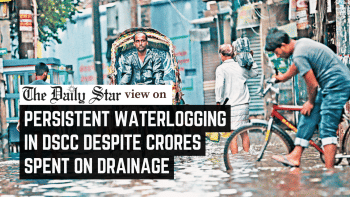
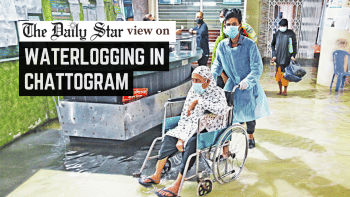




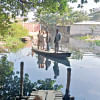
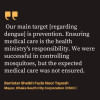


Comments